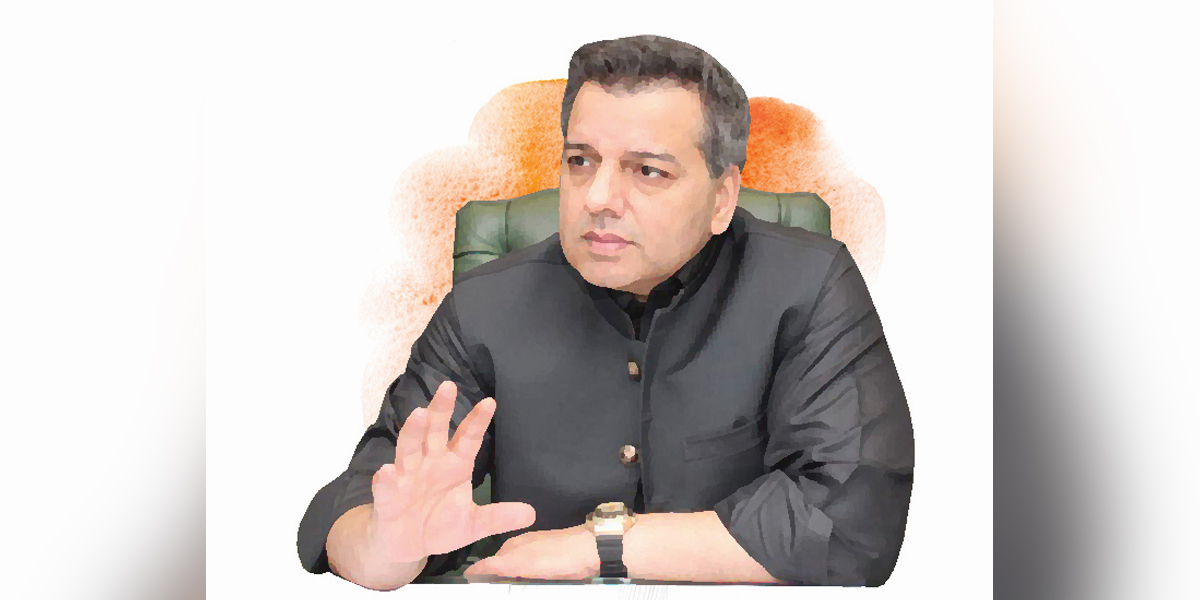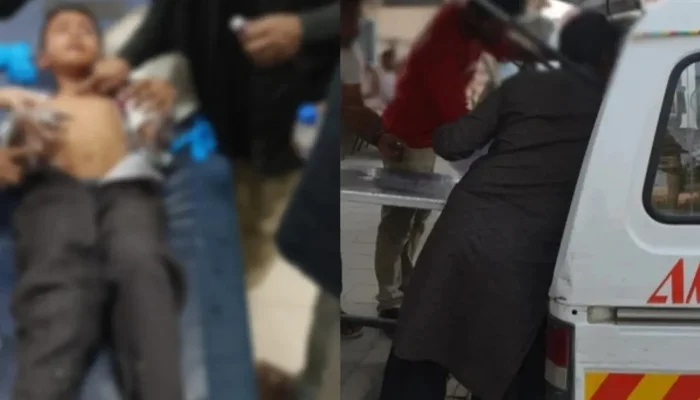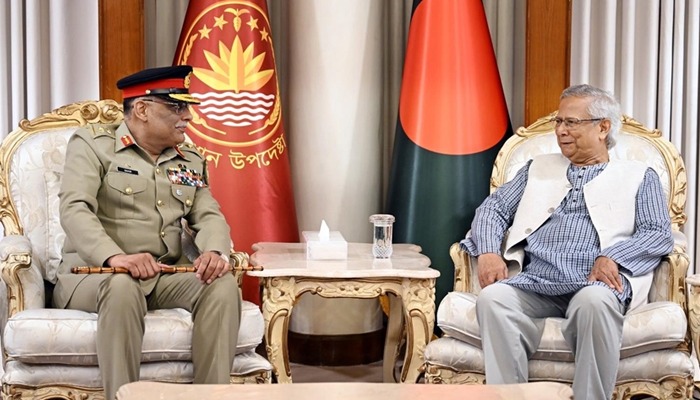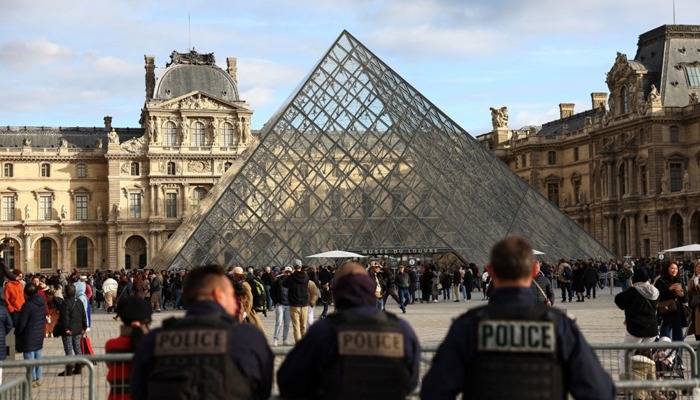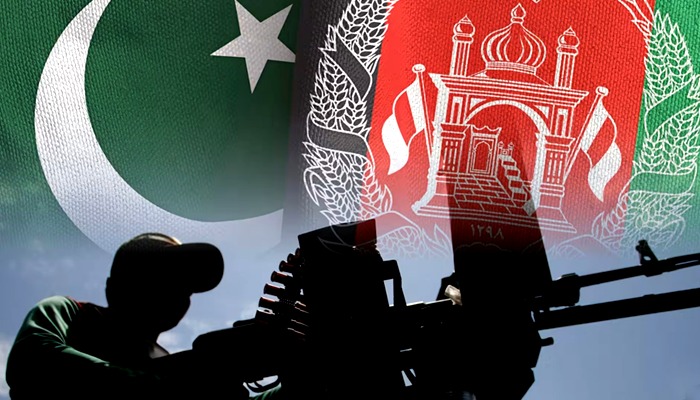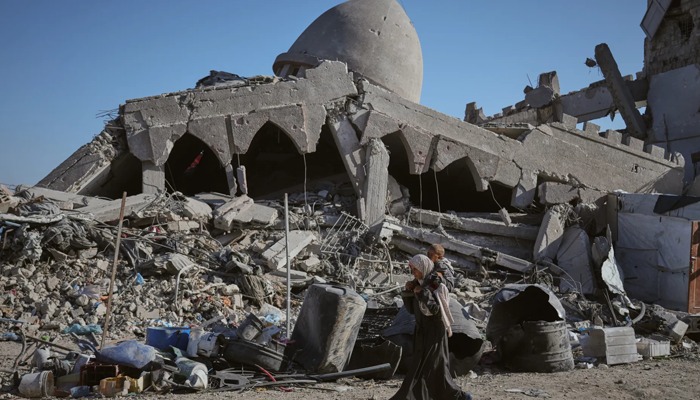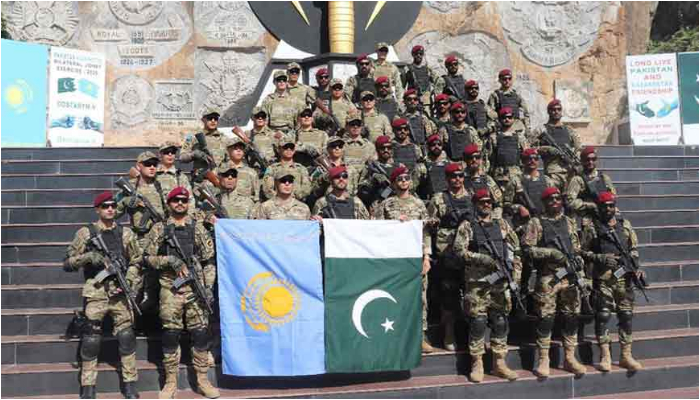Murad Raas is a Pakistani politician, currently serving as a Punjab School Education Minister. He is an alumnus of Aitchison College, Lahore and earned a bachelors of arts in Financefrom Eastern Kentucky University in the United States of America in 1993. He was also awarded an Honorary Ph.D degree in Business Administration by American Heritage University of Southern California, in 2010. Raas believes in incorporating innovative and technology driven solutions to government bodies to help serve the people in the most efficient manner.
This week Bol News talked exclusively to him about the local bodies elections, the opposition’s proposed No-Confidence motion in Punjab, the Single National Curriculum and other issues.
| Q |
What initiatives have you taken to better the education system in Punjab during your tenure?
Murad Raas: We have taken several initiatives and I must say that we have worked through a very difficult time of the Covid-19 pandemic. When we started-off in 2018, we set a roadmap, with a focus to improve governance, access and quality of education. First of all, we digitised the Education department, especially human resource management. The people and paper centric environment was a hotbed of corruption. We digitised the system of teachers’ transfers, leaves, promotions, performance evaluations, pensions and retirements. Through this we circumcised annual corruption of around Rs1 billion. The digitisation also inculcated efficiency in our operations and hence improved the overall governance mechanism of the department. We launched the School Improvement Framework (SIF), which harnesses data literacy, accuracy and credibility while enabling the decision makers to make data-driven decisions. We are gathering live data from each individual school in Punjab via SIF from several data sources, which is then collected, mined and analysed to support policy and decision making.
I believe our flagship initiative of Insaaf Afternoon School Programme, is the most innovative, cost effective and efficient way to increase access to education, especially for girls. We upgraded 7,008 primary schools to elementary level in the afternoon hours. This initiative has tremendously improved continuity of learning of our students, who used to drop-out of the system due to lack of access to elementary education facilities in accessible vicinities. If we had decided to go by the methods of previous governments, we would have had to spend Rs29 billion to upgrade these schools and it could take us as long as five years, while we were able to hit the same impact within a budget of Rs5.5 billion in less than six months.
Then we started actualising the Early Childhood Education (ECE) Policy and set-up 15,000 ECE rooms across Punjab; and we are setting up even more rooms and eventually aim to provide ECE facilities in every primary school across Punjab. These ECE rooms are set-up according to international standards of early learning in terms of facility as well as teachers pedagogy skills. Additionally, quality of education is directly proportional to teachers’ pedagogy skills. We introduced the Innovative Teachers Support Package (ITSP) and the Classroom Observation Tool (COT). These modules are adapted to international best practices of teaching and education management and enable a teacher to continuously learn and refurbish their teaching practices. We have revamped student assessments; there is no more pressure of the conventional 5th and 8th grade board examination on teachers or students. We have launched Formative Assessment Strategy, which promotes learning and comprehension through school based assessments. Going forward, we are going to launch a full fledged satellite TV channel, Taleem Ghar, which will air educational content aligned with the curriculum for grades ECE to grade 8. We piloted this initiative to combat learning losses during the peak of Covid-19 and received a remarkable response. Similarly, we are going to launch Insaaf Academy, which is going to offer a replacement of private tuition and academies.
Furthermore, for the first time 95 per cent of children enrolled in our public schools have registered B-forms, which are their unique IDs in our system and hence there can be no duplication and no fudged enrollments anymore. I believe that despite the fact that we were faced with an unprecedented challenge due to the pandemic and were handed over a department rigged with corruption corridors, we have steered massive reforms, which above all are innovative and sustainable to improve governance, access and quality of education.
| Q |
Has the CM Usman Buzdar government addressed the civic issues of Punjab?
MR: I believe the issues in Punjab were huge. Punjab Chief Minister Usman Buzdar, along with his team, is doing his best to resolve these issues. It is easier to rectify everything on the surface, but it is always difficult and time consuming to mend things from the core; this is what our government is doing. And I think he is doing his best.
| Q |
What will be the manifesto of your party during the 2023 elections?
MR: Health, education, environment protection and above all, transparency and accountability.
| Q |
Comparing Shehbaz Sharif’s and CM Buzdar’s tenure, which one is better in terms of legislations, development projects, etc?
MR: The amount of work which is being done right now in Punjab is much more directed towards the needs of a common citizen, rather than the elite. Hence the visibility might be low but the difference is being created to better the lives of citizens of Pakistan. Every initiative is directed to uplift the underprivileged and disadvantaged. Certainly, the tenure of Usman Buzdar is better in terms of addressing the problems of a common man.
| Q |
Do you think your party will emerge victorious in the 2023 elections?
MR: There is no doubt. The public would never choose the corrupt leaders ever again. Now, the public is much more aware of the corruption corridors of Pakistan Muslim League Nawaz (PML-N) and Pakistan Peoples Party (PPP). The public would never want to give them the mandate to serve again.
| Q |
In what ways in PTI’s Punjab government better than those of PML-N and PML-Q?
MR: We are focusing on the primary issues of health, education and betterment for the common citizens, this has not been done before. The digitisation of the education department, health cards and multiple other initiatives which are sustainable are a loud and clear example of better governance and our priority; which is to serve the common citizens, to make their lives easier, instead of endorsing elitism.
| Q |
Do you think your party could emerge victorious in Punjab’s local body elections?
MR: We are working very hard. Since there has been no work done in these constituencies during the tenure of PML-N, there is still a lot more to be done. We did not get a chance to work while we were in opposition, now we are trying our best to solve people’s problems and make a difference.
| Q |
If the PTI forms the goverment in Punjab again do you think you could be the candidate for CM?
MR: Not interested.
| Q |
What are your thoughts about a single national curriculum?
MR: It is one of the most essential steps to eliminate socio-economic disparity in our country. We are going to see its impact in the years to come, when our children will emerge as one nation instead of people from different economic classes.
| Q |
What measures have you taken to curtail the number of out of school children and school dropouts?
MR: For the first time in the history of the Punjab School Education Department, we mobilised our School Councils. These are mandated committees in every school to create a connection between schools and the community. We launched the School Enrollment Drive 2021 in February and within less than six months we brought one million children back to schools through these School Councils. We issued SOPs, and they operated as our ambassadors urging parents to send/enroll their children into schools. Previously, enrollment drives were managed by teachers, who would do door-to-door campaigns instead of teaching in schools. School’s enrollment is a mandated function of School Councils. We had to re-notify many School Councils but at the same time, we actually witnessed the spirit of our people to serve, only if they are guided, motivated and recognized.
| Q |
Do you foresee a no confidence motion in Punjab? If yes, who could replace CM Buzdar?
MR: No, we are not foreseeing a no confidence motion in Punjab. All the provincial ministers, along with the coalition partners are aligned with the Chief Minister.

